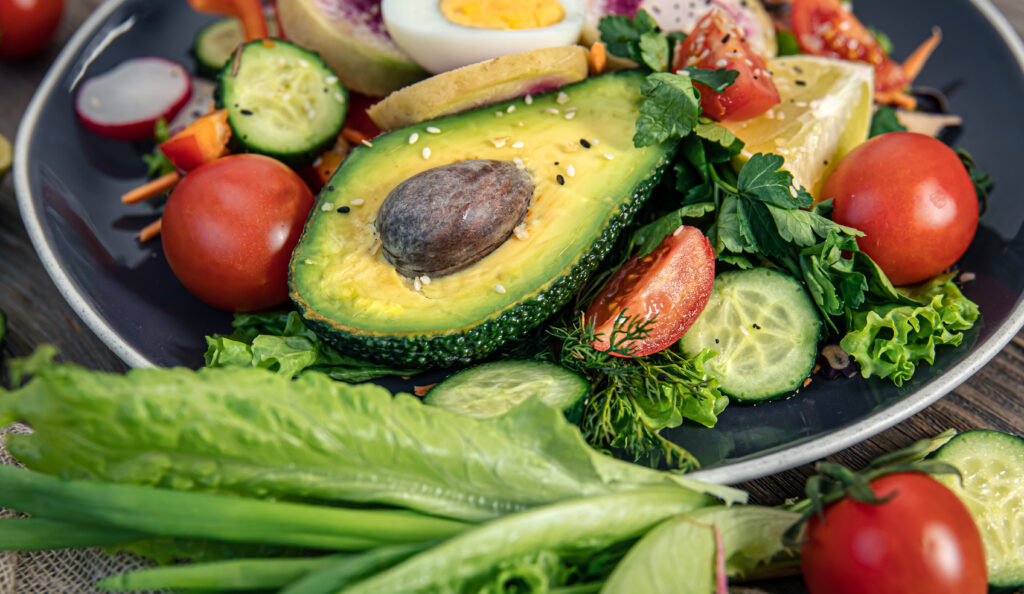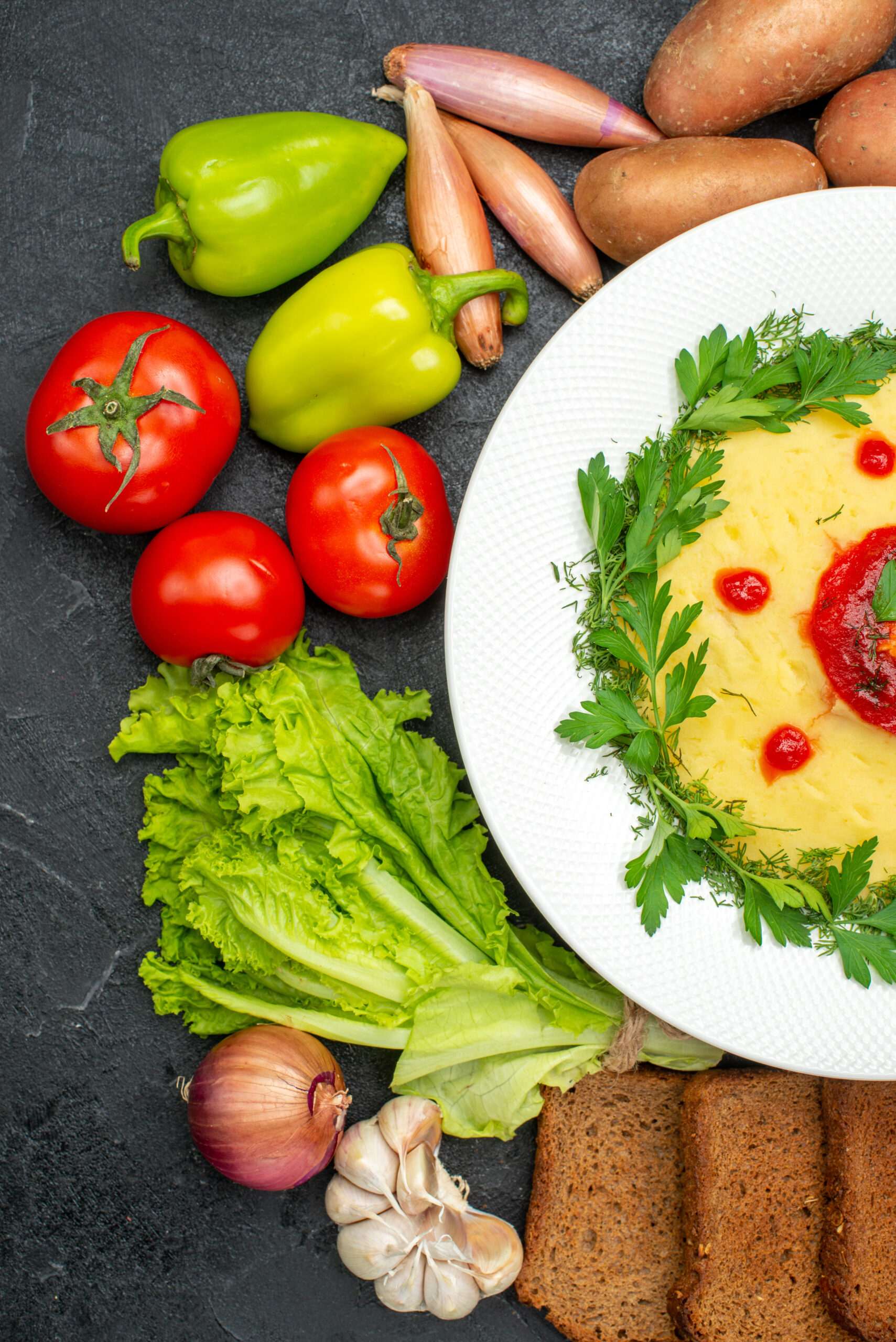Table of Contents
Introduction-Vegetables on Keto Diet
Low-carb Vegetables on Keto Diet are ideal for people following a ketogenic lifestyle because they help support daily vegetable intake without affecting blood sugar and insulin levels. Leafy greens like spinach, kale, and arugula, as well as cruciferous vegetables like broccoli, cauliflower, and Brussels sprouts, are top choices for keto enthusiasts. Known for its high healthy fat content, avocado is also a staple in many keto meal plans.
In this article, we will explore about low carb vegetables on Keto Diet. From healthy green vegetables to a variety of cruciferous vegetables, these veggies not only promote ketosis but add flavor and variety to keto-friendly meals. Let’s dive into the world of keto vegetables and learn how they can be a fun and healthy addition to a low-carb lifestyle.
10 Amazing Vegetables on Keto Diet
Vegetables on Keto Diet, with Nutrition Facts
The ketogenic diet is a low-carb, low-fat diet popular for its health benefits, including weight loss and improved health. While the primary goal of eating healthy fats and proteins is low, vegetables play an important role in providing important nutrients, fiber, and flavor. Here are 10 amazing Vegetables on Keto Diet with nutritional values, you can enjoy on the ketogenic diet:

Spinach:
- Nutrition (1 cup, raw): 7 calories, 0.1 g fat, 1.1 g carbs (0.1 g fat). 7 g fiber), 0.9 g protein
- Spinach is a nutritious powerhouse that contains vitamins A, C, and K, as well as minerals such as iron and magnesium. It’s extremely low in net carbs, making it ideal for keto.
Broccoli:
- Nutrition (1 cup, raw): 31 calories, 0.3 g fat, 6 g carbs (2.4 g fiber), 2.6 g protein
- Broccoli is a cruciferous vegetable rich in vitamins C and K and folic acid. It is low in net carbs, making it an excellent choice for those following a ketogenic lifestyle.
Zucchini:
- Nutrition (1 cup, raw, sliced): 18 calories, 0.4 g fat, 3.5 g carbohydrates (1 g fiber), 1.4 g protein
- Zucchini is a vegetable rich in vitamin C and manganese. It’s a low-carb option that can be mixed into noodles or used in many keto-friendly dishes.
Cauliflower:
- Nutrition (1 cup, raw, chopped): 25 calories, 0.1 g fat, 5.3 g carbohydrates (2.5 g fiber), 2 g protein.
- Cauliflower is a good carbohydrate alternative to rice, mashed potatoes, and pizza crust. It is a good source of vitamin C, vitamin K, and folic acid.
Asparagus:
- Nutrition (1 cup, raw): 27 calories, 0.2 g fat, 5.2 g carbohydrates (2.8 g fiber), 2.9 g protein
- Asparagus is rich in vitamin K, folate, and antioxidants. Its low-carb content makes it a tasty and keto-friendly option.
Avocado:
- Nutrition (1 medium avocado): 322 Calories, 29.5 g fat, 17 g carbohydrates (13.5 g fiber), 4 g protein
- Avocado is a special fruit rich in healthy fats, especially monounsaturated fats. It also provides potassium, magnesium, and vitamins C, E, K, and many B vitamins.
Bell Peppers:
- Nutrition Facts (1 cup, raw, sliced): 31 calories, 0.3 g fat, 6 g carbs (2 .3 g fiber), 1.3 g protein
- Peppers, especially colored bell peppers, are rich in vitamin C, vitamin A, and antioxidants. They’re low in carbohydrates and can add a sweet and crunchy texture to a keto meal.
Cabbage:
- Nutrition (1 cup, raw, chopped): 22 calories, 0.1 g fat, 5.2 g carbohydrates (2.2 g fiber), 1.1 g protein.
- Cabbage is a low-calorie vegetable that provides vitamin C, vitamin K, and fiber. It’s a great choice for making coleslaw or as a keto-friendly takeaway.
Mushrooms:
- Nutrition (1 cup, raw, sliced): 15 Calories, 0.2 g fat, 2.3 g carbohydrates (0.7 g fiber), 2.2 g protein
- Mushrooms are a good source of B vitamins, selenium, and potassium. They’re low in carbohydrates, making them a great addition to keto meals.
Brussels Sprouts:
- Nutrition (1 cup, raw): 38 calories, 0.3 g fat, 8 g carbohydrates (3.3 g fiber), 3 g protein
- Brussels sprouts, rich in Vitamin K, Vitamin C, and Folic, It is a cruciferous vegetable. acid. Although it is slightly high in carbohydrates, it can be eaten in the middle of a ketogenic diet.
Summary
The ketogenic (keto) diet focuses on consuming low-carbohydrate, high-fat foods to induce a state of ketosis, where the body burns fat for energy. Vegetables are a vital component of the keto diet, providing essential nutrients and fiber while remaining low in net carbs. Here are some amazing vegetables on keto diet:
Leafy Greens: Kale, spinach, lettuce, and Swiss chard are low in carbs and rich in vitamins and minerals, including potassium and magnesium.
Cruciferous Vegetables: Broccoli, cauliflower, Brussels sprouts, and cabbage are high in fiber and antioxidants, supporting digestive health.
Avocado: Technically a fruit, avocados are a keto superstar, abundant in healthy fats and low in carbs, making them a versatile addition to various dishes.
Zucchini: Low in carbs and calories, zucchini is perfect for spiralizing into “zoodles” or grilling as a side.
Bell Peppers: Colorful and nutritious, bell peppers offer moderate carbs and are excellent sources of vitamin C.
Asparagus: With minimal carbs and loaded with folate and vitamin K, asparagus is a keto-friendly choice.
Mushrooms: Low in carbs and calories, mushrooms are perfect for adding umami flavor to dishes.
Cucumber: A hydrating option with minimal carbs, cucumbers are great for salads and snacking.
Green Beans: While slightly higher in carbs, they can still fit into a keto diet when consumed in moderation.
Cauliflower Rice: A popular low-carb substitute for rice, providing a similar texture without the carbs.
These vegetables on keto diet, play a crucial role in a balanced keto diet, providing essential nutrients while supporting a state of ketosis and overall well-being. Remember to track daily carb intake and enjoy these veggies as part of a varied and nutritious meal plan.


[…] Family Fitness-Overcoming Challenges […]
[…] found in supplements used for hair, skin, and nail health.Collagen: Collagen products are sold for skin, hair, and health, but more research is needed to determine their benefits. Remember that it is extremely […]